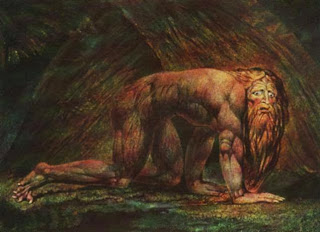Already 5 months have past since I begun studying at the royal conservatoire. I can say that this is almost exactly halfway in the academic year (although apparently it's already the second semester), and I think it is a good time to reflect a bit on how my life has changed during this time, especially regarding what I came here to do, which is write music.
I would like first to begin mentioning what, to me, has been the bad side of it. Since I have never lived in the Netherlands before (or in Western Europe, for that matter), and certainly not alone anywhere, the process of adapting, of creating my own lifestyle, my own routine, has been very slow and I can say that I haven't used my time in the best way possible. I have maybe been too lazy, or too comfortable since I have such a relaxed schedule (I never have lessons before 9.30 am, and never more than 3 lessons a day, sometimes even less). That being said, I do think it is just a matter of adjusting to this new life, and I already feel more organized, and more in control with what I do and when do I do it.
Art by Veri Apriyatno
I also feel that I have learned a lot, not only at school, but also from sharing with other students. The polyphony workshop, although I was one of the people that felt it was a useless subject, actually taught me something really important: that the best effects, the best sounds, most of the time come from extremely simple techniques. In other words, that most of the time I, personally, think too much about the notes, without focusing on the actual music, and thus become too absorbed by the abstract part of it, losing the perspective and thus not seeing that the answer is right there in front of me.
I have also learned to be much more critical with my own work, but critical in a useful way. Through my teachers comments I have learned, that it is really important to try to understand why something works or doesn't work, but also to be free and follow the intuition. This relates to what I wrote yesterday, which is also one of the greatest things I learned, that is to not be afraid of expressing myself in the most honest way, since that is only what counts in the end.
One of the most interesting experiences that I have had was to write the vocal piece and be advised by my teachers to write the music in a way that is different to what I would normally do (i.e. a graphic score as opposed to a traditional score). I think the process of writing this piece was a landmark for me, even if I don't do this kind of thing again in my life, it gave me the opportunity to think about music in a completely different way.
For this semester, in terms of projects there are 3 big objectives for me:
A piece or set of pieces for accordion, commissioned by a friend of mine who also studies at the Conservatoire.
A 10-minute piece for violin, cello and piano that will accompany a dance choreography by a Chilean dancer whom I met through a pianist friend in Santiago.
A piece for the "Rijnhof Project," which basically consists of writing a piece that will be performed at a cemetery in June. Up to now, the idea is writing a piece for 3 trombones that will be based on some Gregorian melody, also utilizing some medieval polyphonic techniques. I still need to think more about it, though.
I also haven't forgotten about the set of piano pieces inspired by the William Blake paintings, but I first want to finish one of these projects before beginning that.
And, as always, more Brahms: op. 119 performed by Sviatoslav Richter











